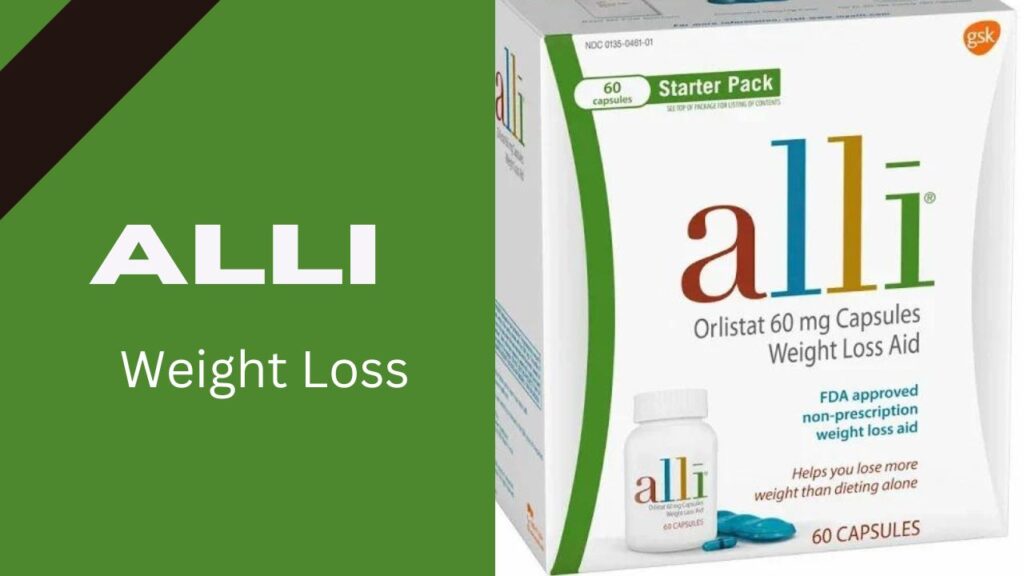Have you contemplated the incorporation of the Alli weight-loss pill into your strategy for addressing your weight management struggles? Within this comprehensive discourse, we shall delve into the nature of Alli, Alli Weight Loss Pills mechanisms of action, the prospective advantages it may offer, any potential adverse effects, and its appropriate place within the context of a well-rounded and wholesome weight-reduction regimen.
Alli Weight Loss Pills
Alli can assist with weight loss, although the results may be modest. Studies have shown that when combined with a calorie-restricted diet and increased physical activity, more than 40% of users lost 5% or more of their body weight in a year. This level of weight loss is considered clinically significant, reducing the risk of heart disease and diabetes.
Alli Weight Loss Review
Alli is a non-prescription weight loss medication designed to assist individuals in managing their weight by preventing the body from absorbing a portion of the dietary fat consume food. It works by inhibiting the action of enzymes called lipases, which are responsible for breaking down fat in the digestive system.
Read also Calotren Weight Loss: Review, Advantage & Side Effect
Alli Weight Loss Uses
A successful weight-loss plan typically results in losing about 1 pound per week in the first month and achieving 5% or more weight loss within a year. If you haven’t reached these milestones after a few months, continuing with Alli may offer little benefit.
Alli Weight Loss Advantage
The active ingredient in Alli, Orlistat, facilitates weight loss by reducing the absorption of dietary fat within the intestines. It accomplishes this by targeting lipase, an enzyme present in the digestive system, responsible for breaking down dietary fat into smaller components that can be either utilized energy or stored in the body.
Alli Weight Loss Side Effects
Typical adverse reactions associated with Alli encompass sensations of abdominal discomfort, discharge of oily substances from the rectum, flatulence accompanied by oily fecal matter, as well as an increased frequency of, or diminished control over, bowel movements. Some users may also experience headaches, back pain, and minor cold-like symptoms.
Read also Spring Valley Probiotic Multi-Enzyme For Weight loss: Review, Advantage & Side Effect
What is Alli Weight Loss Pills?
Alli, a 60-milligram over-the-counter version of orlistat (also known as Xenical), is designed for adults struggling with excess weight. It’s intended to be part of a comprehensive weight-loss strategy that includes a low-calorie, low-fat diet, and regular physical activity.
Alli Weight Loss Eligibility
Alli has gained FDA approval for use in adults with a BMI of 30 or higher, or in those with a BMI ranging from 27 to 30, who also exhibit additional health risk factors such as high blood pressure or diabetes.
Safety Concerns
The FDA conducted a safety review of orlistat due to rare reports of serious liver injuries. Although there was no conclusive evidence linking orlistat to liver injuries, both Alli and Xenical labels were updated to reflect these reports.
Alli Weight Loss Pills Work
Alli’s active ingredient, orlistat, aids weight loss by reducing the absorption of dietary fat in the intestines. It inhibits the action of lipase, an enzyme responsible for breaking down dietary fat. When taken with a meal, Alli prevents the breakdown of approximately 25% of the fat consumed, which is then eliminated through bowel movements.
Read also Alpine ice hack for weight loss | Expert Review
How to Take Alli
Take one 60-milligram Alli pill up to three times a day within an hour of a meal containing fat. Ensure that your daily fat intake is distributed across your three main meals and does not exceed 30% of your total calorie intake. The manufacturer recommends around 15 grams of fat per meal. If a meal contains no fat, you don’t need to take Alli. Be cautious with high-fat meals, as they may lead to more pronounced digestive side effects.
When to Avoid Alli
Before starting Alli, consult your healthcare provider, especially if you are taking medications for certain conditions like diabetes, thyroid disease, heart issues, or seizures. Do not use Alli if you have a history of gallbladder problems, kidney stones, pancreatitis, or irritable bowel syndrome. It’s also not suitable if you are already at a healthy weight, have had an organ transplant, take cyclosporine, have difficulty absorbing food, or are pregnant or breastfeeding.
Conclusion
Alli is not a quick-fix solution for weight loss; it should be part of a holistic approach that includes a balanced diet and regular exercise. To determine if Alli is suitable for your weight-loss journey, collaborate with your healthcare provider to develop the right plan tailored to your individual needs and goals. Remember, successful weight loss is a long-term commitment to a healthier lifestyle.







